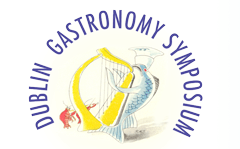Start Date
29-5-2024 9:30 AM
End Date
29-5-2024 9:45 AM
Description
Though today it is communis opinio that the Arabs introduced pasta, especially dried pasta, to Sicily and from there it spread to the continent, there is no evidence to support this theory (Buccini 2013, 2015b, 2024). There is, however, ample evidence both textual and linguistic that this food has been known in southern Italy at least since classical times. Here I argue that an examination of holiday foods, especially those of what I call “solemn holidays,” provides further evidence that pasta has been an integral part of southern Italian cuisine for a very long time.
Creative Commons License

This work is licensed under a Creative Commons Attribution-NonCommercial-Share Alike 4.0 International License.
DOI
https://doi.org/10.21427/wcs4-dt08
Included in
Cultural History Commons, European History Commons, European Languages and Societies Commons, Food Studies Commons, Italian Linguistics Commons, Linguistic Anthropology Commons, Other Arts and Humanities Commons, Other Languages, Societies, and Cultures Commons, Social and Cultural Anthropology Commons, Social History Commons
Collective Memory, Culinary Continuity, and Solemn Repasts: Lagana, Itria and the History of Pasta in Southern Italy
Though today it is communis opinio that the Arabs introduced pasta, especially dried pasta, to Sicily and from there it spread to the continent, there is no evidence to support this theory (Buccini 2013, 2015b, 2024). There is, however, ample evidence both textual and linguistic that this food has been known in southern Italy at least since classical times. Here I argue that an examination of holiday foods, especially those of what I call “solemn holidays,” provides further evidence that pasta has been an integral part of southern Italian cuisine for a very long time.
